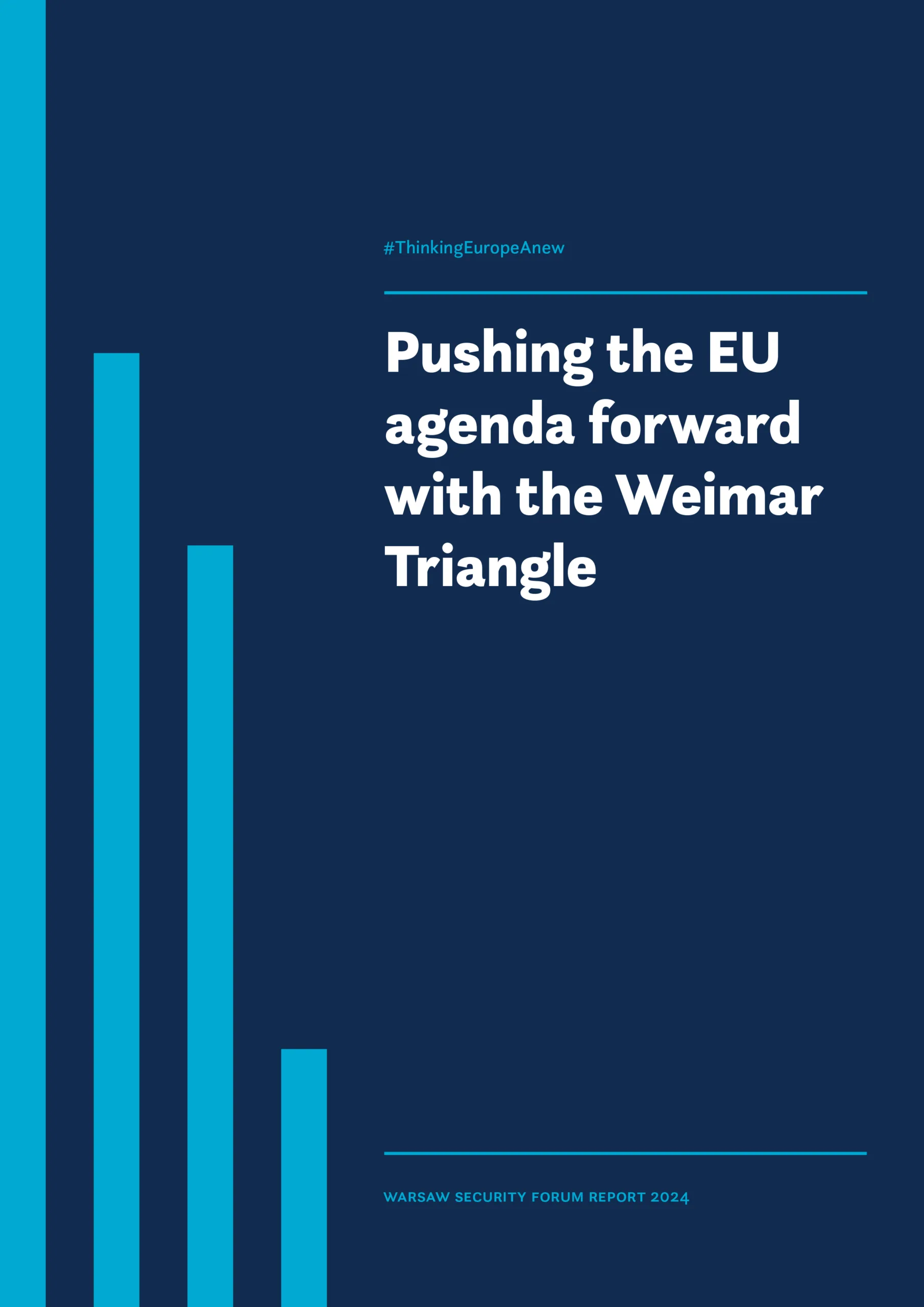After the successful debut of the 2023 WSF Report, the Warsaw Security Forum has decided to dedicate the 2024 edition to mapping out the Weimar Triangle initiative between France, Germany and Poland. This report will examine the role of the Weimar Triangle in shaping the future of EU affairs.
“The Weimar Triangle initiative, which had been overlooked for years, has recently seen a resurgence of interest in Warsaw, Paris, and Berlin. As representatives of three significant, yet diverse EU members align on the most pressing issues, they could serve as a model for others, helping to advance much-needed reforms within the EU. The goal is not to impose a direction, but rather to demonstrate a cooperative approach that could inspire broader consensus across the EU.” – writes Prof. Katarzyna Pisarska, Chair of the Warsaw Security Forum.
As the WSF program takes a closer look at the future of the EU under the theme #ThinkingEuropeAnew, the 2024 report aims to shape the debate on the cooperation opportunities within the Weimar Triangle format for a renewed European project. Hence, the title: “Pushing the EU agenda forward with the Weimar Triangle”.
The main part of the report is divided into three thematic areas: Foreign Policy, Defence, and Energy & State Resilience. Each area identifies two key advocacy causes for initiatives that could mobilise cross-party support and form the basis for more unified policies in areas where the EU currently lacks capacity and needs stronger agency. As a final recommendation, the report proposes creating an International Weimar Fund, which would galvanise cooperation between the three states and ensure long-term sustainability of the project.
The report is a result of the work of over 25 French, German, and Polish members of parliament and experts, with support from the Casimir Pulaski Foundation team.
The Report was officially presented to Ministers for European Affairs of the Weimar Triangle – Adam Szłapka of Poland, Anna Lührmann of Germany, and Benjamin Haddad of France – during their sideline meeting at the Warsaw Security Forum on October 2nd, 2024.
The Authors
Foreign Policy Group
Member of Parliament, Chair of the Polish-American Parliamentary Group, Poland
Special Advisor to the Prime Minister (2024), Member of the European Parliament (2009-2024), France
Member of the Bundestag, Coordinator of German‑Polish Intersocietal and Cross‑Border Cooperation, Germany
Minister Delegate for European Affairs, Ministry for Europe and Foreign Affairs, France
Member of the Polish Sejm, Government Plenipotentiary for Polish-Ukrainian Development Cooperation, Chair of the Foreign Affairs Committee, Poland
Defense Group
Poseł na Sejm IV, V, VI i IX kadencji (2001–2011, 2019–2023), wiceminister gospodarki (2006–2007)
Head of the Research Division on International Security, German Institute for International and Security Affairs (SWP), Germany
Resilience: Energy & Climate Group
Undersecretary of State, Ministry of Climate and Environment (2020-2023), Poland
Chair of the Energy Security and Climate Track, Warsaw Security Forum, Minister of Climate and Environment (2019-2021), Poland

























